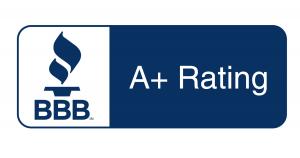Theft by Deception

Theft by Deception Defined
In Pennsylvania, theft by deception is an extension of the basic theft statute: the unlawful taking of the property of another with the intent to permanently deprive the owner of it. Theft by deception expands that definition and adds to it that the defendant intentionally obtained or withheld property of another by deception. A defendant may be found guilty of theft by deception is he or she:
- Creates or reinforces a false impression as to the “law, value, intention or state of mind.”
- Prevents the person from who items were stolen from acquiring information that might affect his or her judgment.
- Fails to correct a false impression “which the deceiver previously created or reinforced.”
The statute specifically states that theft by deception cannot be inferred simply because the defendant failed to perform a promise that was given to the alleged theft victim. Also, the term “deceive” does not include “puffing,” or statements that have “no pecuniary interest.”
Defenses to Theft by Deception
It is important to present a vigorous defense. You want to do everything you can to prevent a conviction for this offense. In order to obtain a conviction, the prosecutor must prove every element of the offense. Although the burden is on the prosecutor, and you do not need to prove anything, there are some possible defenses to this charge:
- You did not take the property at all. If it is missing, the owner must have misplaced or lost it.
- You took the property with the clear intent of returning it.
- The alleged victim gave you the property willingly and freely.
- There was no deception. The alleged victim misunderstood the conversation or transaction.
- You were under duress and did not intend to deceive.
Penalties for Theft by Deception
In Pennsylvania, penalties for theft depend on the value of the property that was taken. This is determined by either the market value of the property or the replacement value. This means the penalty can range from that of a summary offense to a first degree felony. The penalties are:
- Summary offense: Up to 90 days in jail and a fine of up to $300.
- Misdemeanor: From third degree to first degree with penalties from one to five years in prison and fines between $2,000 and $10,000.
- Felony: First, second or third degree felony with penalties ranging from seven to 20 years in prison with fines from $15,000 to $25,000.
It is crucial to have the services of an experienced defense attorney with a track record of success. Your freedom, your future, and the possibility of a permanent criminal record of theft by deception is at stake.
An Experienced Defense Attorney Can Help
Competent legal representation can make a difference in a theft by deception conviction sending you to prison for years and haunting you for the rest of your life or in your freedom. It is important to put up the best fight possible and to have all of your constitutional rights protected.
At DRK Attorneys, we are all former prosecutors who know how the other side works. We offer a free consultation to review your case and determine the best approach specifically for you. If negotiation for lesser charges or reduced penalties is in your best interest, we are experienced negotiators who will work for the best possible resolution.
If taking your case to trial is the answer for you, we have years of experience vigorously representing our clients in the courtroom. There are no guarantees in the law, but you can trust us to vigorously represent you and we have a track record of success You can contact us online or call (412) 281-6869 for a free consultation.









